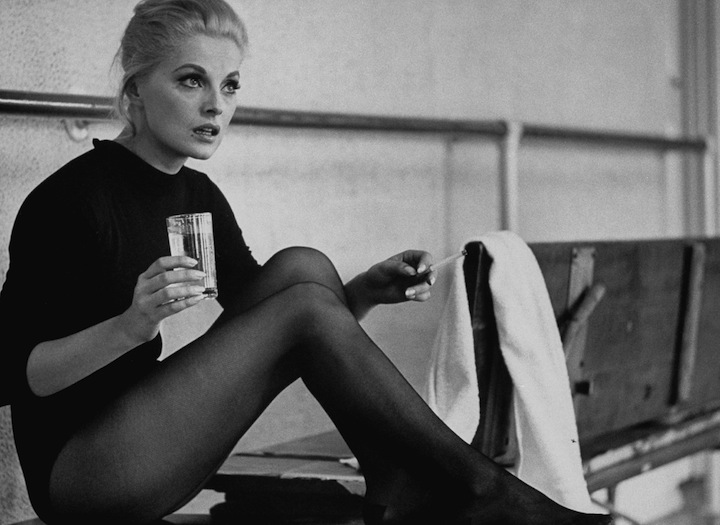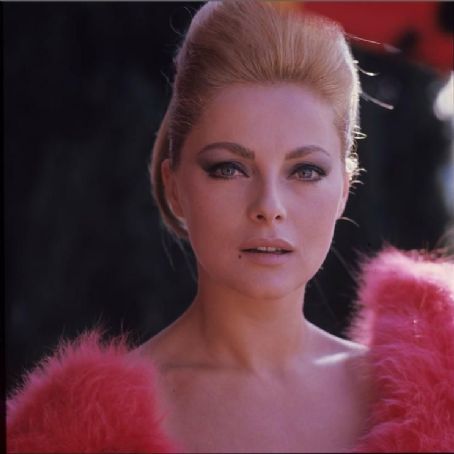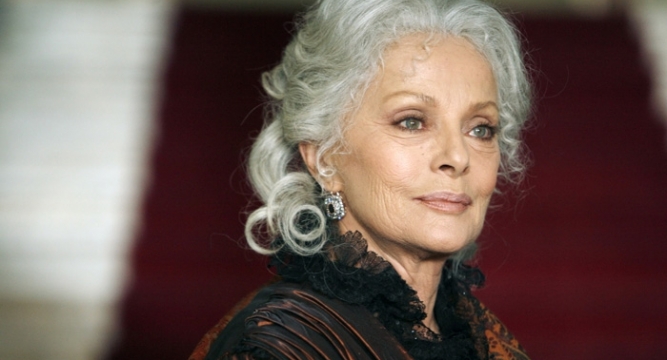OBITUARY: VIRNA LISI
Virna Lisi, the Italian actress whose career was both enhanced and hindered by her photogenic assets, has passed away in Rome after a brief, determined battle against an unspecified cancer. She was 78.

Born Virna Pieralisi in the picturesque central Italian seaside city of Ancona, she made her debut at age 17 in Carlo Borghesio’s 1953 melodrama, La corda d’acciao (The Steel Rope), having been discovered in Paris by producers Antonio Ferrigno and Ettore Pesce. Audiences were immediately captivated and Lisi found steady work - as the luminous Maria in Armando Grottini’s musical E Napoli canta (Napoli Sings, 1953); opposite legendary funnyman Toto in the anthology comedy Questa e la vita (Of Life and Love, 1954); and Francesco Maselli’s La donna del giorno (The Woman of the Day, 1956), in which she excels as ambitious model Liliana, who conjures a rape story for publicity only to have the consequences spin out of control.
 However, these early career highlights were tempered by works that merely exploited her rare beauty, such as Mario Mattoli’s Le diciottenni (Eighteen Year Olds, 1955), an uncredited turn in Antonio Pietrangelo’s Lo scapolo (The Bachelor, 1955) and Alex Joffe’s broad comedy Les hussards (Cavalrymen, 1955). She turned to the blossoming world of television to further establish her acting credentials, taking on the lead role in the landmark 1957 mini-series ‘Orgoglio e pregiudizio’. The format would serve her well over the course of her career, with roles in such hits as ‘Una tragedia american’ (1962), ‘Philo Vance’ (1974) and ‘Beauty Centre’ (2001) as well as dozens of TV movies helping her maintain a high public profile.
However, these early career highlights were tempered by works that merely exploited her rare beauty, such as Mario Mattoli’s Le diciottenni (Eighteen Year Olds, 1955), an uncredited turn in Antonio Pietrangelo’s Lo scapolo (The Bachelor, 1955) and Alex Joffe’s broad comedy Les hussards (Cavalrymen, 1955). She turned to the blossoming world of television to further establish her acting credentials, taking on the lead role in the landmark 1957 mini-series ‘Orgoglio e pregiudizio’. The format would serve her well over the course of her career, with roles in such hits as ‘Una tragedia american’ (1962), ‘Philo Vance’ (1974) and ‘Beauty Centre’ (2001) as well as dozens of TV movies helping her maintain a high public profile.
A support role in Sergio Corbucci’s blockbuster historical epic Romolo e Remo (Romulus and Remus, 1961) and her potent presence in Joseph Losey’s 1962 erotic-drama Eve brought Lisi to the attention of Hollywood producers at a time when studios were unveiling a Monroe-like starlet almost weekly. But Lisi’s talent and craft was already well-honed and she was sought to co-star with many of the international industry’s top male stars - Jack Lemmon (How to Murder Your Wife, her 1965 American debut); Marcello Mastroanni (Casanova ’70 and Kiss the Other Sheik, both 1965; The Voyeur, 1970); Alain Delon (The Black Tulip, 1965); Vittorio Gassman (A Maiden for The Prince, 1966); Frank Sinatra (Assault on a Queen, 1966); Tony Curtis (Not With My Wife, You Don’t!, 1966); Anthony Quinn (The 25th Hour, 1967; The Secret of Santa Vittoria, 1969); Rod Steiger (The Girl and The General, 1967); George Segal (The Girl Who Couldn’t Say No, 1968); William Holden (The Christmas Tree); Charles Aznavour (The Heist, 1970; Love Me Strangely, 1971); David Niven (The Statue, 1971); and, Richard Burton (Bluebeard, 1971, alongside Raquel Welch).
Virna Lisi was aware of the dangers of being typecast in the ‘exotic beauty’ role. She famously turned down Roger Vadim’s Barbarella, the international sensation that would make Jane Fonda a star, and bought out her contract with the United Artists studio, convinced the were withholding strong parts from her in favour of skin-deep support turns. She went to great lengths to challenge herself in often non-commercial fare, such as an early starring role alongside Gastone Moschin and Nora Ricci in Pietro Germi’s Signore & Signori, which would earn the Grand Prix trophy at the Cannes Film Festival. As she matured, accolades were bestowed upon her for Liliana Cavani’s Al di la del bene e del mal (Beyond Good and Evil, 1977), Alberto Lattuada’s drama La cicala (The Cricket, 1980); Carlo Vanzina’s comedy Sapora di mare (Time for Loving, 1983); and, Luigi Comencini’s romp Buon Natale, Buon anno (Merry Christmas, Happy New Year, 1989). Her greatest triumph would come in 1994, when she was cast as ‘Catherine de Medicis’ opposite Isabelle Adjani’s titular monarch in Patrice Chereau’s La reine Margot (Queen Margot); the role would earn Lisi honours at Cannes (Best Actress) and France’s Cesar Awards (Best Supporting Actress). She has been honoured with eight career achievement awards, including acknowledgement from Venice, Lecce and Taormina festival bodies.
 She has largely worked in television since completing Christina Comencini’s 2002 Italian ensemble dram, Il piu bel giorno della mia vita (The Best Day of My Life), her dominant matriarch winning acting honours at the Italian Film Journalists Awards and the Flaiano Film Festival. Her final film, Latin Lover, reteams the actress with Comencini and is due for realease in 2015.
She has largely worked in television since completing Christina Comencini’s 2002 Italian ensemble dram, Il piu bel giorno della mia vita (The Best Day of My Life), her dominant matriarch winning acting honours at the Italian Film Journalists Awards and the Flaiano Film Festival. Her final film, Latin Lover, reteams the actress with Comencini and is due for realease in 2015.
Married to architect Franco Pesci for 53 years (he passed away in 2013), Virna Lisi is survived by her son, Corrado, and three grandchildren.
 Italian Cinema,
Italian Cinema,  Obituary,
Obituary,  Virna Lisi
Virna Lisi 